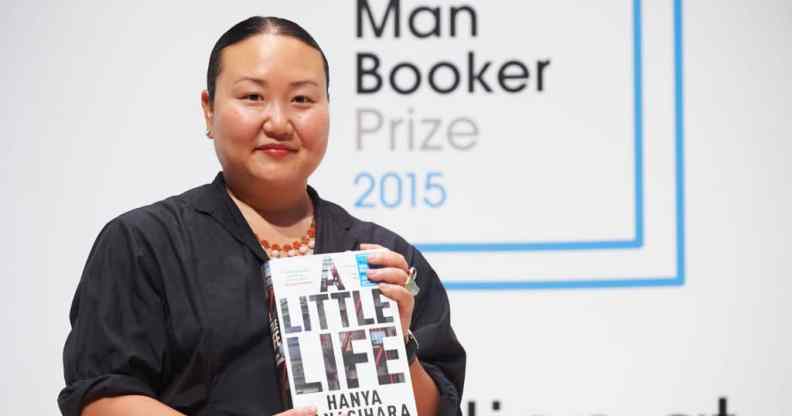A Little Life author Hanya Yanagihara defends writing about gay men ahead of new book

A Little Life was shortlisted for the Man Booker Prize in 2015. (Getty)
Hanya Yanagihara, author of A Little Life, has defended her right to “right to write about whatever I want”.
In 2015, Yanagihara rose to prominence with A Little Life, described as “an astonishing and ambitious chronicle of queer life in America” by author Garth Greenwell, who suggested it deserves the title of “The Great Gay Novel”.
Yanigahara’s highly-anticipated follow-up, To Paradise, will be released Tuesday (11 January). Over 700 pages-long, To Paradise explores queer life across different time periods: from an alternate version of 19th century America where same-sex marriage is commonplace; to Manhattan in the 90s, where queer men are struggling with the AIDS epidemic; and finally, a dystopian future where the world is suffering from plagues and ruled by totalitarian governments.
Previously, Yanagihara has been criticised for her writing about gay men, as a woman who is presumed to be heterosexual.
In 2015, literary critic Daniel Mendelsohn attacked her depiction of gay relationships in A Little Life, writing that it “revives a pre-Stonewall plot type in which gay characters are desexed, miserable, and eventually punished for finding happiness” and labelling it as “a regressive and repressive cultural fantasy from the middle of the last century”.
In a new interview with The Guardian, she Yanagihara defended her choice to write stories centred around gay men, saying: “It’s very dangerous. I have the right to write about whatever I want. The only thing a reader can judge is whether I have done so well or not.”
Some gay writers have also leapt to her defence. Novellist Edmund White has been a vocal supporter of To Paradise, calling it “a mature masterpiece” and claiming it is “as good as War and Piece“.
In the past, queer writer Alexander Chee praised Yanagihara’s allyship on Twitter, citing her involvement in editing queer anthologies and giving mainstream coverage to queer writing as editor-in-chief at The New York Times’ T magazine. He concluded that she has demonstrated “again and again she is no tourist to our lives”.

